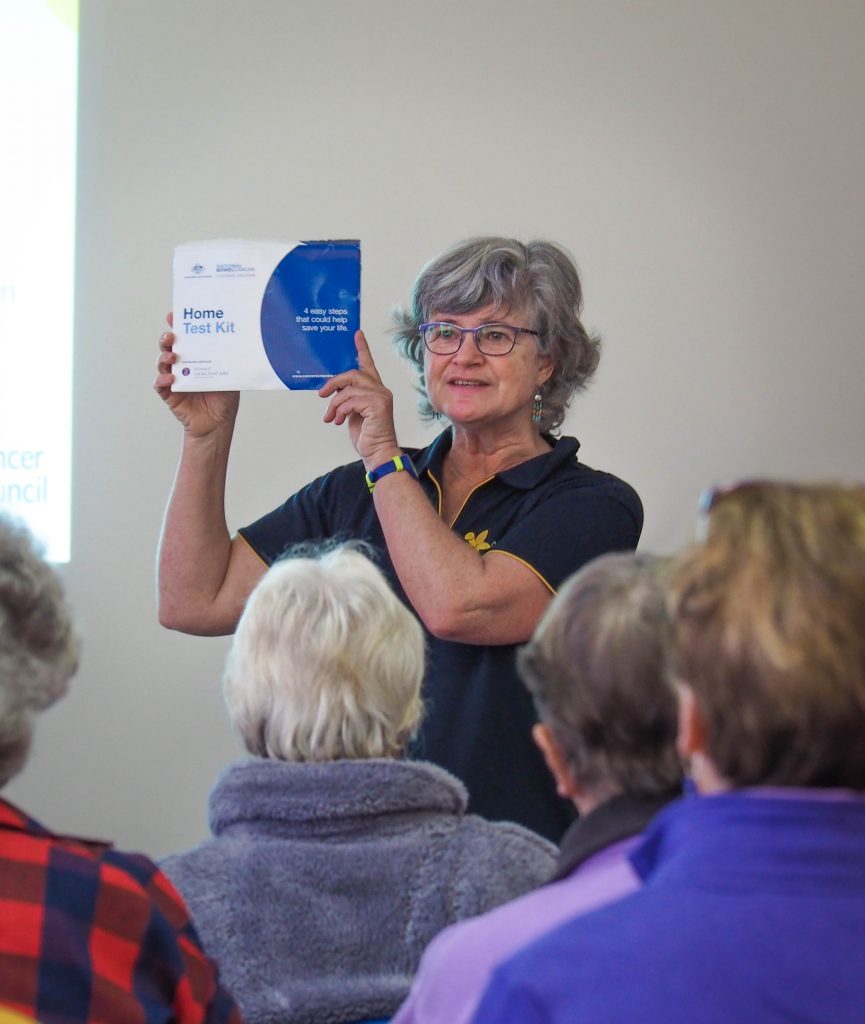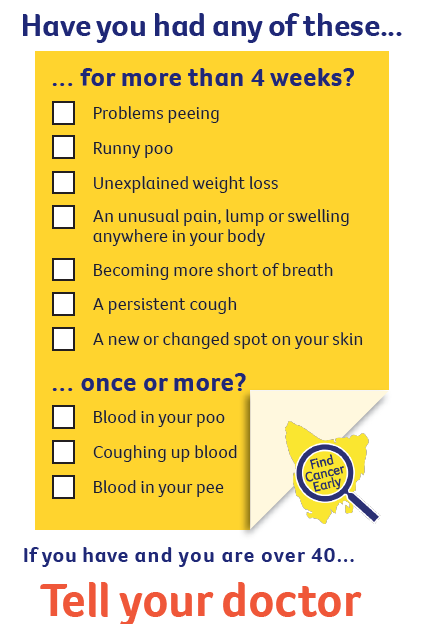Helping Tasmanians find cancer early
Posted on May 20, 2019

Shortness of breath, blood in one’s urine, skin spots that have started to change shape — they’re things you may already know to look out for as potential early signs of cancer.
Even so, building community knowledge about a wide range of early warning signs is critical to helping people seek out medical and treatment in a timely way.
That’s why Primary Health Tasmania is supporting the Cancer Council Tasmania to run the Find Cancer Early project in the areas of Sorell, Dodges Ferry and Tasman Peninsula.
The project aims to increase awareness of the early signs and symptoms of the five most common cancers, and encourages people to seek medical help if they notice any of the symptoms.
About two dozen locals came to a public information session at the Sorell Community Health Centre on Monday 20 May to find out more about the typical early signs of the five most common cancers in Tasmania (and Australia as a whole): breast, prostate, bowel, melanoma, and lung.
“Everyone, really, has been impacted by cancer in some way,” Cancer Council Tasmania’s Jill Pierce told the group. “My main message today is about the importance of finding cancer early, and getting treatment in a timely fashion.”
Find Cancer Early also encourages people to participate in the national cancer screening programs for bowel cancer, breast cancer and cervical cancer.
The Sorell participants heard that more than 80 Australians die from bowel cancer every week, with blood in one’s faeces a common warning sign to look out for.

But you can look after your bowel by eating a high-fibre diet of fruit, vegetables, nuts and wholegrains, as well as limiting red and processed meat consumption, Jill said.
For breast cancer, the group heard regular breast checks at home (in the shower, for example) are a good way to pick up irregularities, with free mammograms available to people over 40 years old.
Noticing any difficulty urinating and unexplained weight loss were also raised as potential signs of prostate cancer, while irregular skin spots or roughness of the skin could be worth investigating to rule out the development of melanoma.
In some good news, Jill said Australia’s cervical cancer incidence had halved since the implementation of the National Cervical Screening Program.
Notably, she stressed that the Find Cancer Early project intended to build awareness of symptoms, and wasn’t aimed at those already showing them, and said anyone who did notice an abnormality should seek advice from their GP.
Pictured above: Cancer Council Tasmania’s Jill Pierce speaks to Sorell locals about early signs and symptoms of common cancers.
